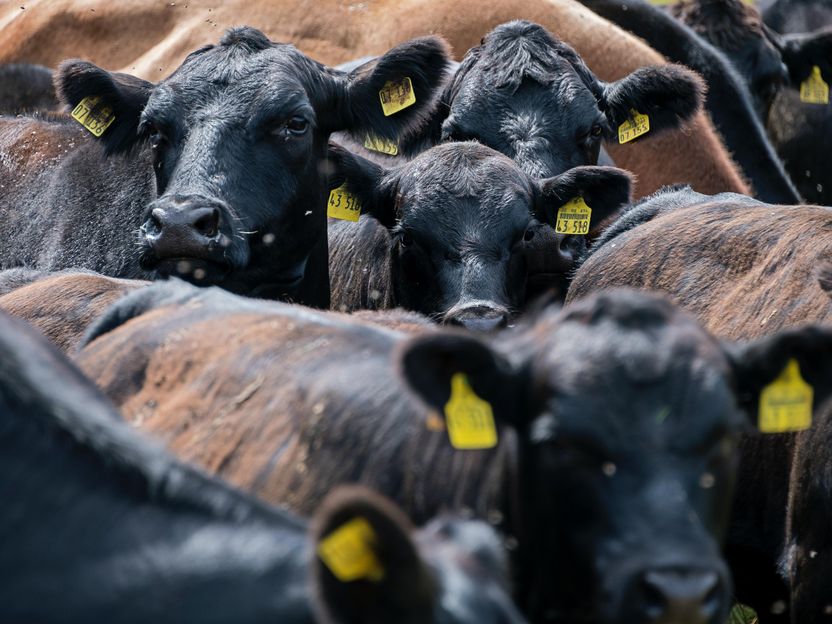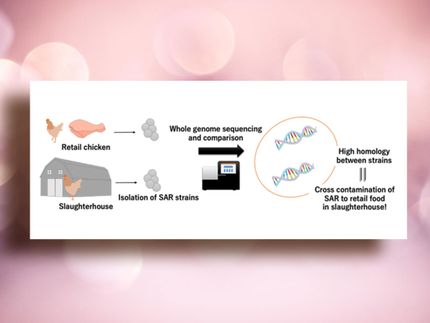Forschung zeigt, dass die Angabe "ohne Antibiotika aufgewachsen" bei Rindern nicht korrekt ist
New study in Science Magazine suggests that some cattle processed for the ‘Raised without Antibiotics’ market have been treated with antibiotics
Many consumers choose higher-priced steaks, burgers and other beef products from cattle that have been raised without antibiotics. The USDA approves meat labels with claims such as ‘No Antibiotics Ever’, ‘No Added Antibiotics’ and ‘Raised without Antibiotics’, but how confident can shoppers be that they are, in fact, getting what they paid for

Photo by Etienne Girardet on Unsplash
Not very, according to a new study published today in Science that found that a substantial portion of cattle destined for the ‘Raised without Antibiotics’ market have been given antibiotics.
Lance B. Price, founder and co-director of the Antibiotic Resistance Action Center at the George Washington University, Laura Rogers, Deputy Director Antibiotic Resistance Action Center at GW, and Kevin Lo, CEO of Food In-Depth authored the study.
The team obtained urine samples from beef cattle being slaughtered for the ‘Raised without Antibiotics’ marketplace. They tested nearly 700 cattle from 312 lots and 33 different ‘Raised without Antibiotics’ certified feedyards. They found that 42 percent of feedyards had at least one animal test positive. Lots with at least one positive test represented approximately 15 percent of the ‘Raised without Antibiotics’ cattle processed during the study period.
The findings suggest that today’s ‘Raised without Antibiotics’ labels lack integrity. “People ask me all the time what they can do to prevent the overuse of antibiotics in meat production. For years, I’ve been telling them to buy products labeled ‘Raised without Antibiotics’. I’m disappointed to see that these promises aren’t always true,” Price said. “The good news is that the majority of producers appear to be doing it right.”
The research team found that there are strong incentives to cheat on a set of claims that are relatively easy to confirm. While USDA approval gives these labels credibility and value in the marketplace, the agency does not mandate empirical testing to validate them. “The USDA, retailers and restaurants have the tools to ensure the integrity of these important labels. Consumers are paying real money for these claims, they should get what they pay for.” Lo said.
‘Raised without Antibiotics’ production is a market-based solution to a serious public health issue, but the system only works if labels are verified. The authors recommend that the USDA and retailers strengthen verification and enforcement. “Growing demand for ‘Raised without Antibiotics’ meats and poultry has the potential to curb antibiotic use in food-animal production,” Price said, “Until either the USDA acts to rigorously verify these claims or retailers eliminate their safe harbor of ignorance, consumers should not rely on the accuracy of these labels. My hope is that consumers and advocacy groups will pressure the USDA to reform these important label claims.”
The study, Policy reforms for antibiotic use claims in livestock,” was published online April 7 in the journal Science.
Most read news
Organizations
Other news from the department science

Get the food & beverage industry in your inbox
By submitting this form you agree that LUMITOS AG will send you the newsletter(s) selected above by email. Your data will not be passed on to third parties. Your data will be stored and processed in accordance with our data protection regulations. LUMITOS may contact you by email for the purpose of advertising or market and opinion surveys. You can revoke your consent at any time without giving reasons to LUMITOS AG, Ernst-Augustin-Str. 2, 12489 Berlin, Germany or by e-mail at revoke@lumitos.com with effect for the future. In addition, each email contains a link to unsubscribe from the corresponding newsletter.




























































